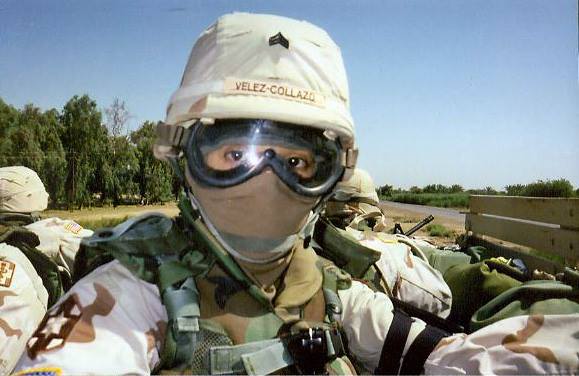I first made contact with Doraliza in 2008, when she was living in a boarding house in Orange County. Her parents and most of her family members were back in Puerto Rico, her homeland, and the only person she had any contact with was her niece. Intelligent and educated, Doraliza had served in the Army Medical Corp in Iraq. She was a proud “Boricua”, but she was shy, rarely leaving her room other than to go to the VA for Post Traumatic Stress Disorder (PTSD) treatment. At the time, I had little experience with PTSD other than what I had been observing with other vets we were assisting.
Some of the issues associated with PTSD are depression andisolation. Veterans that have been to war and have seen horrible thingsoften have adifficult time being around civilians. Sometimes, they only feel normal when they’re around other combat wounded or combat-experienced vets. It can be a challenge to get them socially involved; it’s not easy for them to come and join a bunch of people they don’t know.
That was Doraliza’s situation. She had been traumatized by her experiences in Iraq, alone in California, financially strapped, and renting a room in a boarding house. It wasn’t an ideal place for a young lady who had, at one time, planned to become a doctor.
With that knowledge, I was surprised when she agreed to join a group of us who were going to a comedy show at the invitation of the USO. It was a gutsy thing to do, but she came, and that was our first meeting. While nervous throughout the event, she stayed until the end—and even agreed to attend more get-togethers.
Subsequently, we had many conversations about her time in the service and the experiences she had had. She was an educator, and she helped teach us about many of the challenges females have had—and continue to have—in the military. Doraliza was among the first female vets we had in our group.
One of the things we talked about was why she didn’t go back to her family. Although she missed Puerto Rico and her family, she said she didn’t want her family to see her the way she was—the way she had become.
In the time she was here she started to open up. But inevitably, she would always revert to the safety of her boarding house.
Until she was given a service dog.
A little chihuahua named Lupita changed Doraliza’s life. Doraliza had a constant friend that depended on her, which is one of the reasons service animals are so important. Not only do they give unconditional love and companionship, they also give vets a friend to look after, to be responsible for, and to be of service to. Even if that friend is a chihuahua. Lupita didn’t have PTSD; she just needed to go outside and do her business. That forced Doraliza to go out a little more. Soon, Lupita was wearing a sweater, she had her nails painted, she was out and about- And so was Doraliza.
Doraliza became a friend to many vets in the few years she was with us in So Cal. She was always one of the first to extend a hand to newcomers. But like all good things, her time with us ended and she returned to Puerto Rico to build her home and spend time with her parents.
Now, in the mountains of Puerto Rico, Doraliza has a pack ofchihuahuas. I would guess they all keep her busy, and they certainly keep her being of service. As time went by, Doraliza and I remained friends. We periodically exchanged cards and letters, and we shared a few laughs now and then.
And then Hurricane Maria hit Puerto Rico and devastated the country.
Doraliza was stateside at the time, visiting her sister who had just had surgery, but with all forms of communication down, she couldn’t contact her family or anyone else in her town to see if they were okay. She called us to ask for help in getting a satellite phone, and we were thankfully able to help with her request. We could tell she was desperate to return to her community to help her friends, family, and neighbors.
After she used the satellite phone to call her family—and finding out they were shaken but okay—she returned and began helping the locals in any way she could. She visited neighbors and let them use the phone so that they could communicate with their own loved ones.
We began a GO-FUND ME page to bring awareness to the situation and hopefully a little money to help Doraliza in her efforts to help others. We saw this as an opportunity not only to help people in Puerto Rico but to help one of our vets because we know how crucial it is that people with PTSD continue to be of service to others.
As a battlefield nurse, she was a hero to many of the wounded she cared for in Iraq, and now she’s a hero to many in her community. And she gets to be of service once again.
The phrase “Water seeks its own level” truly applies to this young lady. We are extremely proud of Doraliza for setting such an honorable example. It’s our privilege to know her and call her a friend, “Puerto Rican como El Coqui”. Today she is happy and enjoying life in her beloved Island again.
All the best, Doraliza.

